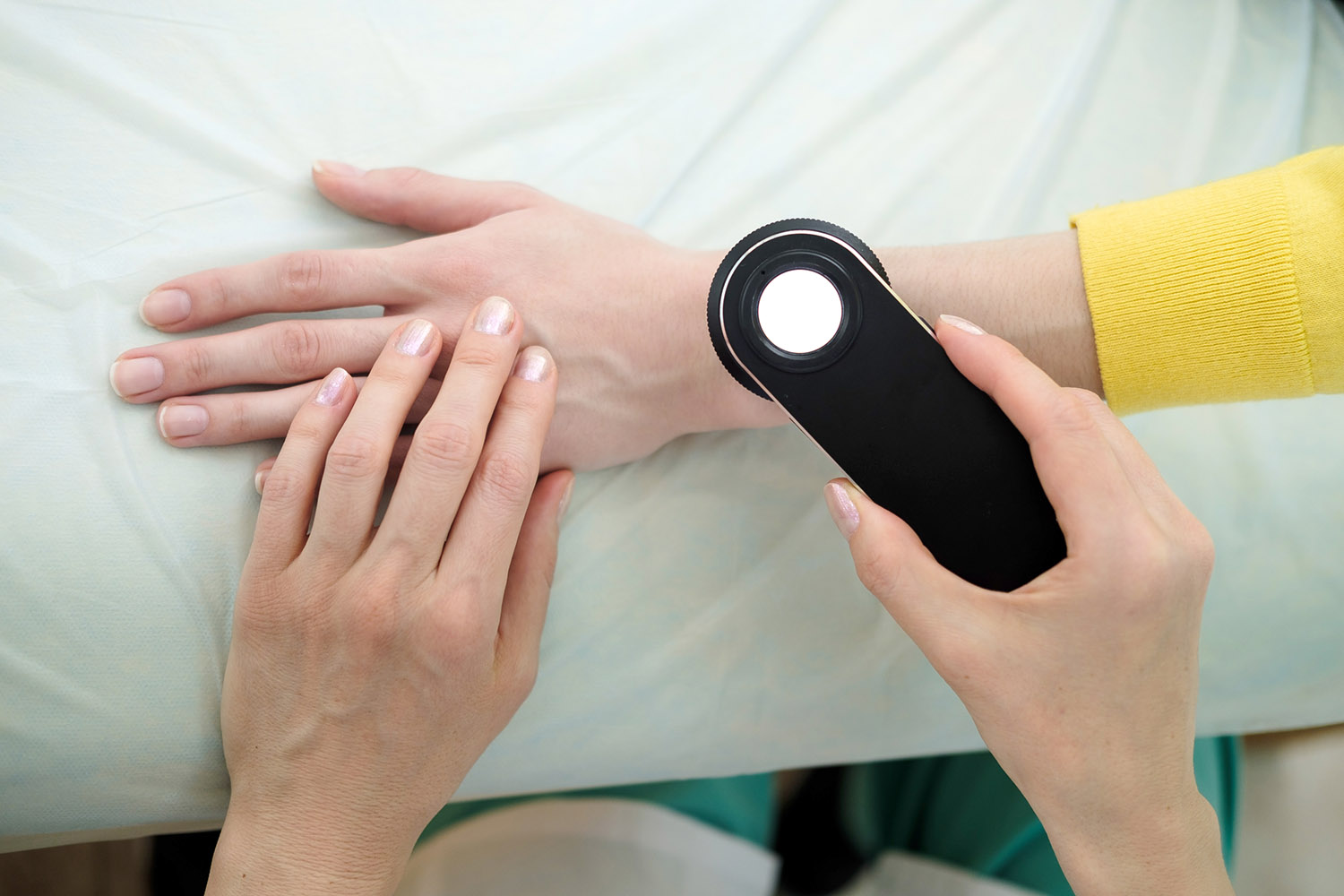UM to coordinate nationwide research project to unravel skin diseases
The Dutch Research Council (NWO) has, within the framework of Research along Routes by Consortia (NWA-ORC), awarded the research project Next Generation Immuno-Dermatology (NGID) with a prestigious grant of 11.7 MEuro. NGID is a nationwide, large-scale project to unravel novel biomarkers for six different skin diseases, coordinated by Maastricht University. These biomarkers will drive a high-tech, patient-centric approach in clinical practice.
In the Netherlands, over 2.5 million patients suffer from chronic inflammatory skin diseases. Although not life-threatening, the personal impact and socio-economic costs of these chronic conditions are very high. The biggest problem is that many treatments are not suited for every patient and often do not work.
NGID will tackle this problem and will develop the right care for the right patient at the right time. Within this 6-year project six inflammatory skin diseases will be investigated in ultra-high detail. For this approach, a unique, international consortium consisting of scientific institutes, universities, high-tech companies, hospitals, patient associations and (bio)pharmaceutical industry has been setup. Dermatologists from all Dutch University Medical Centers will be connected to biologists, bio-informaticians, statisticians, behavioural scientists, communication researchers and of course to the patient. By means of a new data analysis and integration approach, NGID will make patient-specific fingerprints that will guide the best care for the individual patient in the future.
Maastricht
Researchers from both Maastricht University and the Maastricht University Medical Center (MUMC+) will work closely with the other partners of this nation-wide consortium. The Maastricht MultiModal Molecular Imaging institute (M4I) has an important role in identifying novel markers for these diseases. Under the guidance of Dr. Eva Cuypers, Prof. Ron Heeren and Dr. Rob J. Vreeken several researchers will deploy mass spectrometry based imaging modalities to identify biomarkers for disease identification and for following the effect of treatment. Dr Johan van Soest, Prof. André Dekker and Dr. Leonhard Wee (Maastro) will play an important role in the integration of the diverse data sets comprising e.g. clinical-, omics- and social interaction- data. Advanced data fusion techniques and deep-learning algorhytns will point us towards these novel markers. Dr. Martine Summer-Kutmon (BIGCAT/MACSBIO) will focus on the de-regulated metabolic pathways which are underlying the various diseases. Dr. Antoni Gostyński from MUMC+ will as staff dermatologist be deeply involved in the efforts from the clinical side of the project.
Next, the UM will house the project management of this nation-wide project and create a true ‘dermatology-stamp’ in Maastricht.


Also read
-
Higher air pollution increases the likelihood of people voting for opposition parties rather than ruling parties. This is the major finding of research by Nico Pestel, a scientist at the Research Centre for Education & Labour Market (ROA) at the Maastricht School of Business and Economics.
-
Healthy nutrition, sufficient exercise and cultural and talent development are important for the growth of every child. These key elements will be an integral part of every school day, thanks to the concept of Healthy Primary School of the Future. Maastricht University was one of the initiators of...
-
Scientists at the biomedical MERLN Institute of Maastricht University and the Maastricht University Medical Center have succeeded in growing an embryo structure of human identical twins purely from stem cells, without using an egg or sperm cell. Thanks to this culture, scientists are now seeing for...

